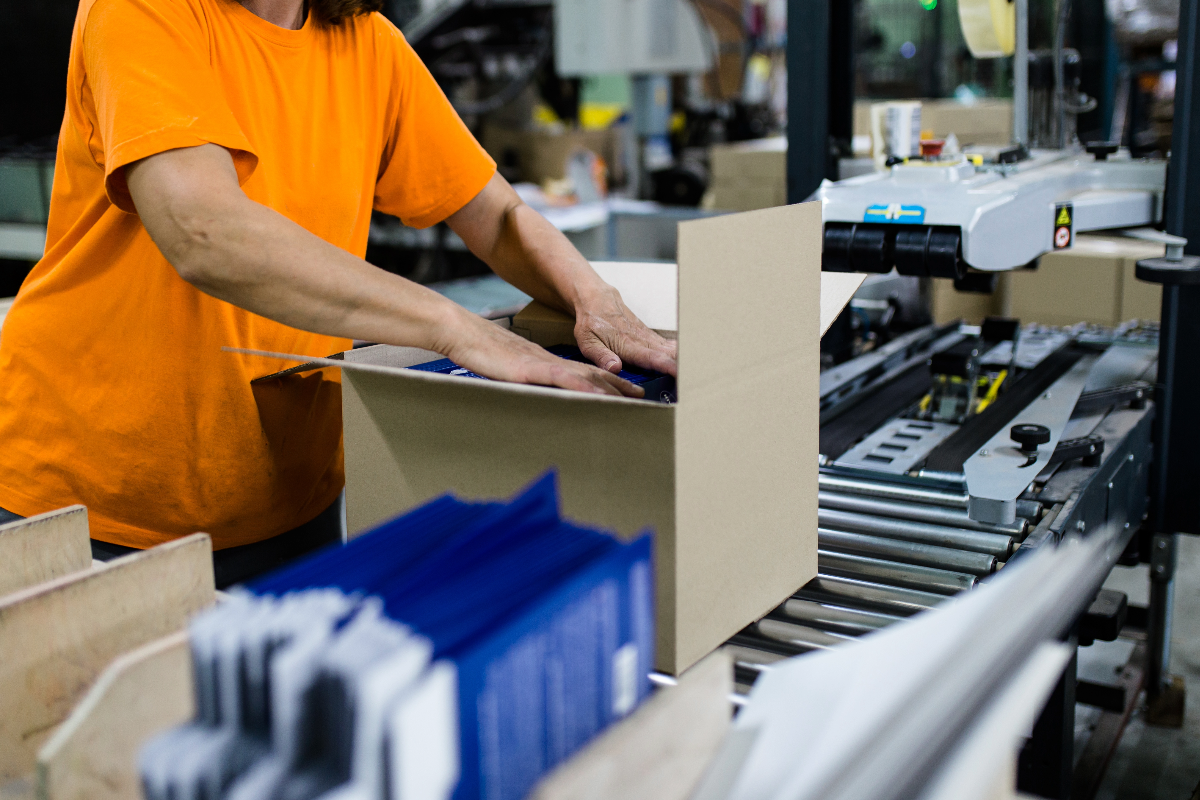BLOG
Could plants be the answer to hard-to-recycle packaging materials?
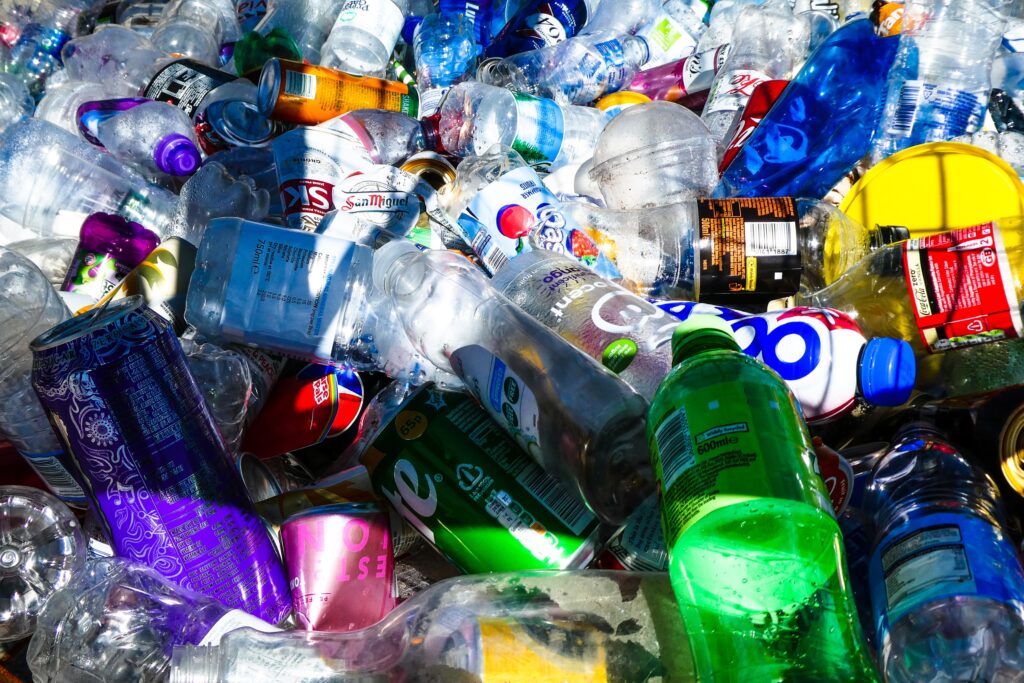
Single-use packaging
Did you know that less than 1% of “disposable” coffee cups are recycled?
In this blog we are looking into single use packaging – packing materials, coffee cups and food packaging – items which are in everyday use but are difficult to recycle.
Coffee cups need specific recycling processes because the inside of the cup is coated in film. Other items that are difficult to recycle include packaging for food-based products – for example take away containers for hot food, or drinks cartons. Even if they are recyclable they are not able to be recycled if contaminated with leftover food.
Materials used for packaging and packing – such as styrofoam or polystyrene, generally aren’t accepted at recycling facilities and are certainly not accepted on most kerbside recycling collections.
Manufacturers are now looking at ways to make these products from more sustainable materials. We look at some alternatives to plastic packaging that are currently on the market or in development for key packaging products.
Made from plants
Vegware are a company based in Edinburgh that make fully compostable single-use coffee cups and food packaging from plant-based, sustainable sources.
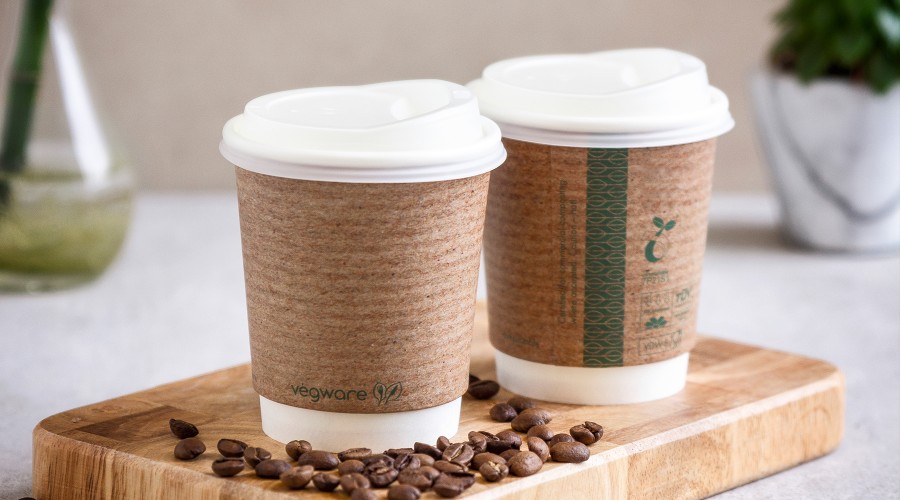
We caught up with Helen Mathieson, Vegware’s Supply Chain and Customer Service Director for a quick Q&A to find out more :
What are Vegware products made of?
“We use a variety of materials for our different products. PLA (bioplastic made from plant sugars) is used in our clear products like lids and cold cups; we use paper and card from sustainable sources for cups and straws; and PLA coated board for hot food containers. For more information on materials see Vegware – Our materials“
If I buy a coffee in a Vegware cup, how can I make sure I dispose of it correctly?
“They can be composted. The cups can be co-mingled with food waste, so can go in a food waste bin. Dry, clean paper and card products can also be recycled.”
What does “commercially composted” mean?
“There are two types of compostable certification – products which home compost, and products which commercially compost – these need a facility for the composting process, and certification of compostability means that they go through this process and become compost within a 12 week period.
Commercial composting is when items that are collected in waste streams are taken to a commercial site which offers a composting facility. Essentially the cup won’t compost in nature, or on your home compost heap. Whether a product is either home or commercially compostable depends on the material it is made from.”
How is this better than standard coffee cups and food packaging?
“Compostable products enable the packaging to be thrown away with food waste, and with food waste on them. Other means of waste management require products to be free of food waste in order to be processed correctly, otherwise this material simply goes to landfill or incineration. These products can be disposed of with the food that came with them, and processed alongside them to produce compost!”
How much waste does Vegware save from landfill or incineration?
“In 2021, Vegware’s Close the Loop Scotland collections took over 76 tonnes of used Vegware for composting – the equivalent of 4.4 million of Vegware’s 12oz cups and lids. 100% of mainland UK is covered by 2 courier collection services, recycling our cups or composting all Vegware products.”
Drinks cartons
Tetra Pak, who make packaging for products like orange juice, long life milk and other drinks, have recently announced that they are looking at replacing the aluminium lining of their cartons with a fibre-based lining.
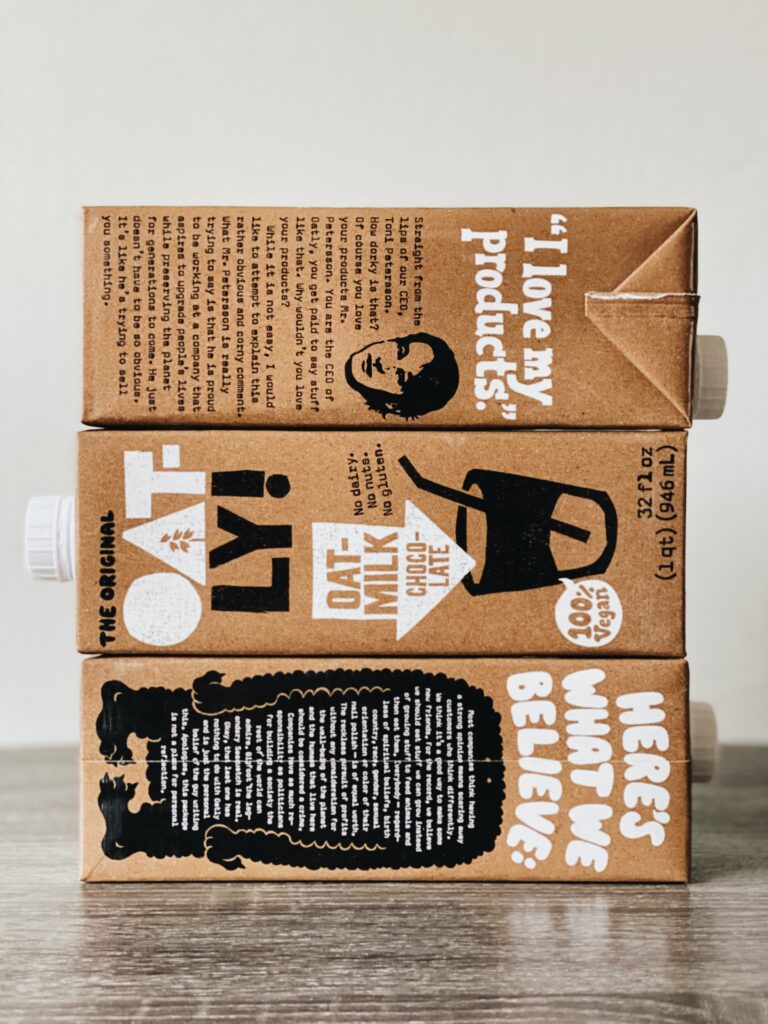
Although Tetra Paks are in theory 100% recyclable, the complex structure of the cartons means they are only recycled at specialist facilities and most kerbside collections can’t take them. Currently, the lining has to be separated from the cardboard in order to fully recycle the carton. In fact, in 2018, just 26% of Tetra Paks were recycled.
If the new, paper-based lining proves viable, it means that Tetra Pak cartons will be much easier for households and businesses to recycle. Being able to easily recycle these kind of containers, especially if they can be collected with kerbside recycling collections, would mean that many more of these could be recycled. It could also have an impact on the number of plastics drinks bottles produced if a fully recyclable carton was available for cold drinks and other products where plastic might be the usual container.
Polystyrene packaging materials
We are also hearing about other innovations that replace traditional paper and plastic based packaging – for example this packaging material made from mushroom protein and a mixture of natural by-products such as hemp or sawdust. Agricultural waste is also repurposed to make fertiliser for the mushroom proteins.
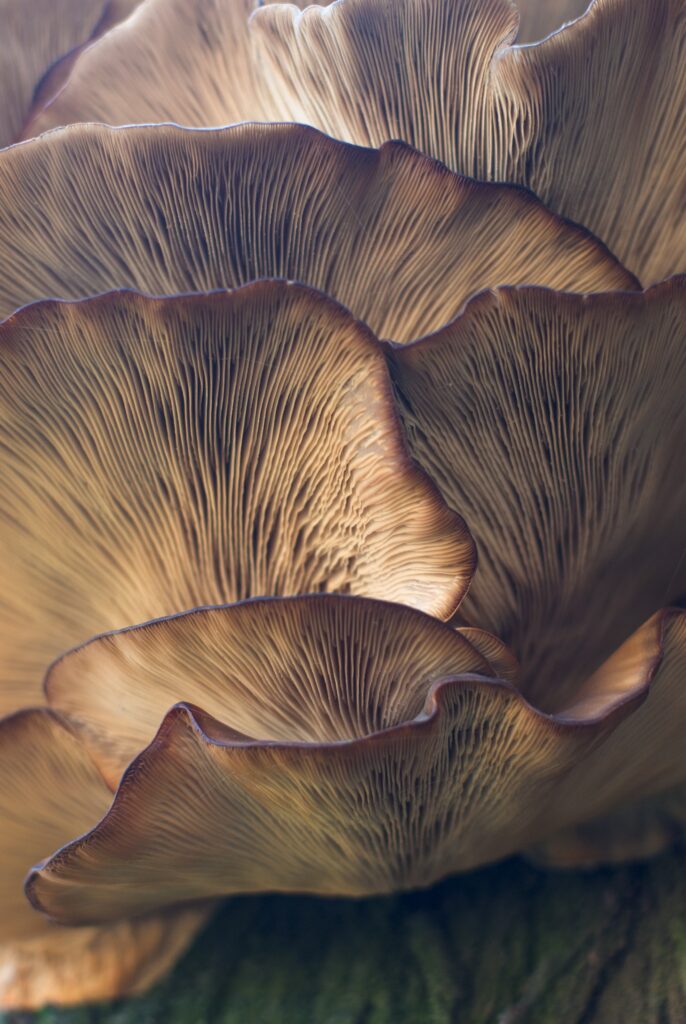
The Magical Mushroom Company, based in Surrey, grow mushroom proteins and make it into packaging material. The mushroom packaging is used as a replacement for product packaging, such as Styrofoam.
After use, it’s compostable at home and will biodegrade in around 45 days. It can also be composted in commercial facilities so can be collected as part of food waste kerbside collections. This is a great alternative to plastic packaging for goods and gift products. It even has thermal properties so can keep goods cool in transit.
Alternatives to plastic drinks bottles
More and more manufacturers are using a percentage of recycled plastic within their bottles, especially now that the Plastic Packaging Tax has been introduced.
Recent legislation means those manufacturers that don’t use recycled plastic in their products have to pay an additional tax (link to PPT blog) in an aim to reduce the amount of new materials being used in plastic packaging.
However, raw materials are still being used in many single use plastics.
Cans and cartons can be used as an alternative to single use plastics, but both come with their own recycling issues. Cans are easily recyclable but sill have a carbon footprint associated with them.
Is there a solution?
Avoiding single use plastics and creating packaging materials by using waste materials and easily recyclable materials has to be the key to more sustainable packaging.
Of course, all of these alternative materials still rely on the public and businesses properly recycling or composting the products. However, new innovations – in particular those using sustainable or recycled materials or by-products of manufacturing processes – at least do not use the raw materials associated with single use plastic manufacture. Compostable and easy-to-recycle materials make it easy for people to dispose of waste properly.
Contact our team to find out more about support to recycle or reuse your business waste plastics.


